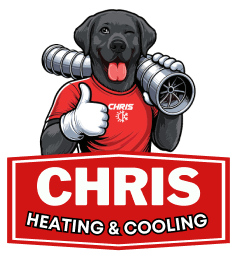A freeze-up is when a layer of ice forms on the outside of your AC unit. Whether you have a window unit or a central air system the causes and effects of this, as well as the solutions, are the same. The ice build-up on your AC unit creates an inability to cool effectively and puts stress on the compressor, which in time can lead to a costly repair or the need for a replacement compressor.
If you’re reading this article because your AC unit is freezing up or frozen please turn it off immediately and contact us.
A ‘freeze up’ or ‘a frozen system’ is exactly what it sounds like; your HVAC system begins to build up ice on one of its major components. Ice build-up, if gone unnoticed can be catastrophic to your central air system. The causes of ice build-up vary, but luckily for every cause, there is a solution.
Here are 3 common causes for ‘freeze ups’:
Insufficient Air Flow:
Anything restricting airflow in your unit will cause your system’s evaporator coil (indoor component) to freeze up. There are a few reasons why your system may not have sufficient airflow. The most common problem is a dirty air filter, your filter should never look like this, and if it does replace it immediately. Not only will a dirty air filter cause breakdowns, but it will also decrease system efficiency. The Department of Energy states, “Dirty filters can increase your A/C’s energy consumption 5-15%”. This is why it is important to check your filter monthly and to replace it when needed; filters can be purchased here. Other less common air flow problems include blocked ducts, broken/faulty blower motors, and dirty evaporator coils.
Low on Freon:
Another reason your AC is freezing is it may be low on refrigerant. When your system is low on refrigerant the pressure drops, resulting in the coil temperature dropping. If the temperature drops below freezing (32 degrees) the moisture accumulating on the coil will begin to freeze, and will ultimately lead to a breakdown.
One important fact to know about your HVAC system losing refrigerant: HVAC systems are not like your car’s A/C system, they should not require more refrigerant every year. When an HVAC system begins to lose refrigerant this is a sign there is a leak in the system that needs to be found and sealed, otherwise, your system will continue to leak refrigerant.
Outdoor Temperature:
Air conditioners are designed to operate in specific outdoor temperatures. If you run your system when it’s below 60 degrees it will function, but it will more than likely result in a freeze-up. The reason for this is the air is too cool outside and the system pressures drop leading to your coil temperature dropping below freezing.
Note: If you are in a unique situation (e.g. apartment building, condo, office building, etc) there are solutions we can implement that can enable your AC to run in the cooler conditions mentioned above. To learn more about these solutions please contact Chris Heating & Cooling.







